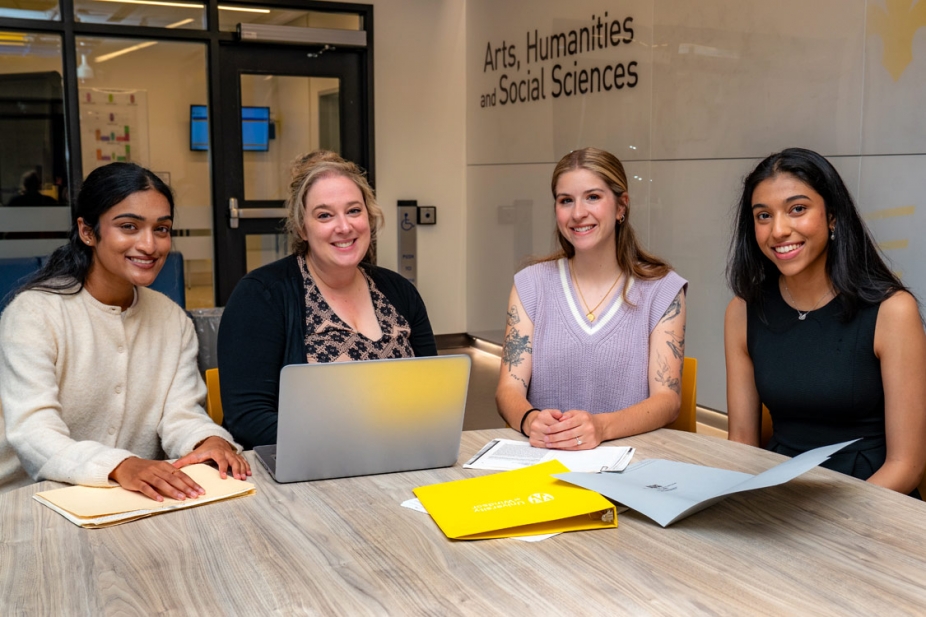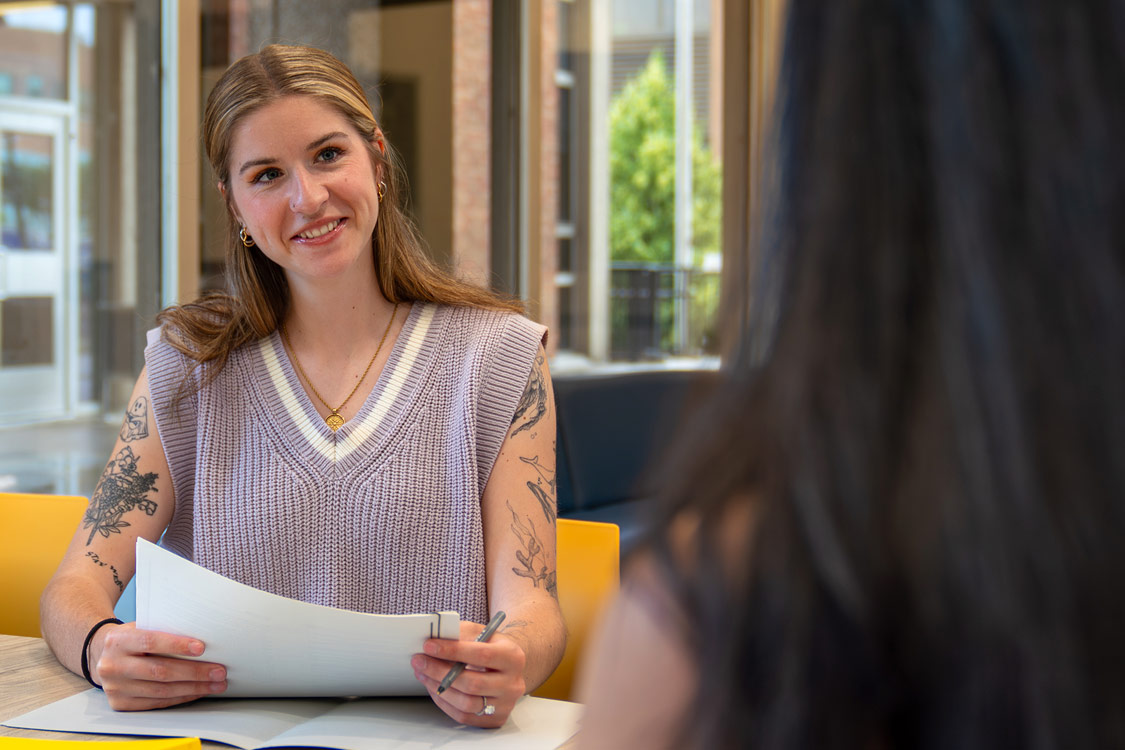Jul 03, 2025

HEAL Lab researchers (L to R: Niksha Venugopal, Ananya Sood, Marissa Rakus, Dr. Kendall Soucie)
review survey results highlighting the impact of medical gaslighting on patients across Canada
[DOUG DROUILLARD/University of Windsor]
University of Windsor researchers were flooded with so many responses to a medical gaslighting survey, they had to take breaks from reading the heartbreaking stories about patients being overlooked by medical providers for serious health concerns they were facing.
“A lot of people carry their pain in their thoughts, and through telling their stories,” says Ananya Sood behaviour, cognition and neuroscience student and one of the undergraduates on the project.
“It’s heavy as people share some of the worst moments of their life sometimes with you. But it has been powerful in that they were able to share their voice with us now.”
Researchers with the HEAL lab, led by psychology professor Dr. Kendall Soucie, and including co-investigator Dr. Jessica Kichler, circulated a Canada-wide survey looking at medical gaslighting and its impact within healthcare. People who identify as female or gender diverse opened up about a time, or times, when they felt their health concerns were dismissed or not taken seriously by healthcare providers.
They also looked at the impact these experiences had on their lives, their sense of self, their relationships with others, and seeking medical care in the future.
“I thought we’d get about 50 to 60 responses, but we got around 1500 and clearly, we struck a chord based on the volume and depth of responses” says Soucie.
“We all feel an immense amount of gratitude, so many people took to the study and wrote so deeply about their most vulnerable experiences with us.”
Soucie says the research aims to amplify the lived experiences of dealing with delayed diagnosis, and treatment. And also, to start to understand what idealised care looks like from the patients’ perspective.
“We’re bringing their experiences to the forefront, to centre stage,” she says.
“When we hear from patients directly, we can start to see where the gaps in care are, and we can understand what worked well, and where we need to improve”
The research team were inspired by the many stories of patients who became their own advocates, and voices for change. From building community through support groups to learning how conduct their research, to pushing back, and demanding testing to finding new providers who will listen.
Marissa Rakus is a PhD candidate in psychology and the study coordinator. She says she knew the topic would be popular, but she didn’t expect such an overwhelming response.

“We repeatedly found that patients don’t need an answer immediately, they want to be listened to, to be heard, validated, and to know they have someone to go on that journey of uncertainty with them – someone who will help them figure it out,” says Rakus.
A lot of the stories, says Rakus, revolved around prevention and earlier diagnoses, and wondering if they could have avoided long-term impacts if they had not been overlooked for so long, which affected their physical and mental health, and overall quality of life.
“They start questioning themselves, doubting themselves and thinking it is all in their head because providers were minimizing what they’re experiencing,” adds Rakus.
“Some people’s stories are about how they almost died; I think they’re all really heavy, but those stories stood out to me.”
To further the research, for her dissertation, Rakus will interview healthcare providers to get multiple perspectives of the systemic issues from the healthcare side.
“We don’t think it’s intentional on the part of providers, it’s a larger, systemic issue that has historical roots in an androcentric medical system,” says Soucie.
She adds that they hope these partnerships will create lasting and impactful change.
“We also really want to highlight the importance of listening to patients with curiosity, compassion, and without judgement,” she says.”
“We want to start a conversation around how to infuse more education and awareness of women’s health care into curricula, and more inclusive health care in general, while also targeting implicit biases and engaging in critical conversations that foster reflexivity, and humility.”
Rakus will be presenting the team’s preliminary findings at the Canadian Psychological Association Conference in June in Newfoundland. Biology undergraduate Niksha Venugopal won an EDI prize for her poster presentation on the topic of medical gaslighting at the UWill Discover conference this year.
The study that was launched in November is now closed and preliminary analysis of data are underway, but Soucie wishes to keep this conversation going, and encourages anyone to connect with her team.
Results will be shared on HEAL Lab website for those interested in following the study or connecting with them.
By Sara Elliott. Courtesy: https://www.uwindsor.ca/news/2025-06-25/uwindsor-medical-gaslighting-study-brings-patients%E2%80%99-painful-truths-light




